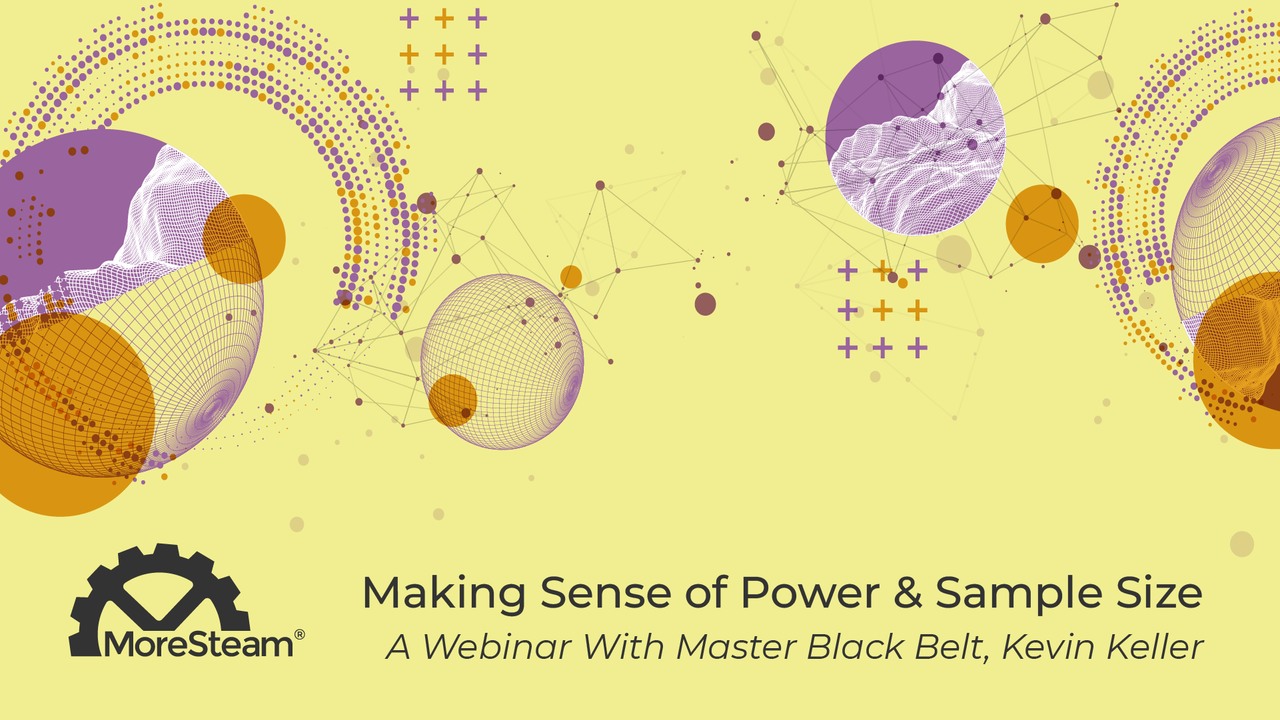
Making Sense of Power & Sample Size
When planning experiments or analyzing data, the terms "power" and "sample size" frequently come up—but what do they really mean, and why should you care?
In data analysis, statistical power and sample size are vital components that can make or break the reliability of your results. Properly managing these elements helps ensure that you’re drawing meaningful conclusions from your data as well as balancing the costs of sampling vs the goals of the business.
Join us for this free, hour-long webcast where we’ll take a closer look at these concepts, explain their application, and walk through real-world examples to show their impact.
In This Session, We Will:
- Define Statistical Power and Its Importance Understand the concept of statistical power and why it’s crucial for minimizing errors in data-driven decisions.
- Explore the Relationship Between Power & Sample Size Learn how sample size affects the power of your test and how to balance them in your analysis.
- Identify Key Factors Affecting Power and Sample Size Review factors like effect size, significance level, and data variability that impact your calculations.
- Discuss Practical Guidelines and Tools for Calculating Sample Size Get introduced to essential tools and resources that simplify sample size estimation, including considerations for different types of tests.
Who Should Attend?
- Quality professionals and data analysts looking to strengthen their understanding of statistical power
- Project managers responsible for experiment planning
- Anyone interested in learning how to make data-driven decisions with greater confidence
Don’t miss this opportunity to gain clarity on power and sample size!


Master Black Belt • MoreSteam Client Services
Kevin Keller is a professional statistician and quality professional with over 30 years of experience teaching, coaching, and leading Lean Six Sigma project teams from the shop floor to the enterprise levels. He began his career as a process engineer at Texas Instruments and then served in a Master Black Belt role at MEMC Electronic Materials for 15 years. Kevin advanced to manage quality systems for AB‐InBev and eventually accepted a Master Black Belt position for AB‐InBev's North American Zone. Kevin earned a BS in Chemical Engineering from Missouri University of Science and Technology and a Masters in Applied Statistics from The Ohio State University. He also is a certified Lean Six Sigma MBB.
